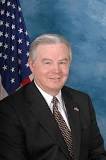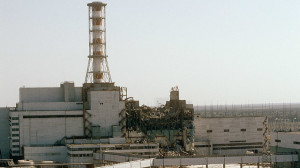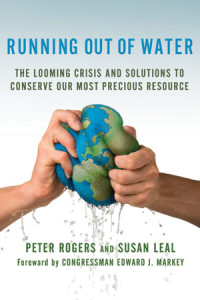 No one in the United States has become seriously ill or has died because of any kind of accident at a civilian nuclear power plant
No one in the United States has become seriously ill or has died because of any kind of accident at a civilian nuclear power plant
Joe Barton
Joe Linus Barton is a Republican politician, representing Texas’s 6th congressional district in the U.S. House of Representatives since 1985, and a member of the Tea Party Caucus
As Cecilia sat in one of the beautiful chairs with the curved arms, doing her best to process what she’d just heard, Nikolai limped out of the short hall that connected the living room to the bedrooms. Seeing her pale face and confused eyes, Nikolai pulled the adjacent chair up to hers, and looked at her with concern. “Checheeleuh, are you all right? You look as though you’d just seen a ghost.” Nikolai pressed his hands against hers, and called to Tatiana. “Tatiana, please bring a glass of water for our guest – she is not well.”
Tatiana hurried out of the kitchen with a glass of water. Nikolai handed it to Cecilia, and continued to rub her free hand with his. Cecilia took a sip, and sat back against the chair, dizzy and unable to comprehend what she’d just seen. Finally, she said softly, “Nikolai – those people in the picture..” Nikolai looked up at Tatiana, “What picture is she talking about?” Tatiana went over to the sideboard and retrieved the  photo of his daughter and her family. “Did you know Magda?” asked Nikolai. Cecilia opened her eyes again, and looked into his. “No – the man and boy. They are my uncle and his son.” For some strange reason, it occurred to Cecilia at that moment, that Manuel was not, in fact, her stepbrother, but instead was her cousin. Then she quickly realized how irrelevant that detail was to her current realization. Nikolai shook his head, and said “No, my friend and colleague, you are mistaken. The man’s name is Lopez-Linares, not Vasquez.” Cecilia replied softly, “Yes, Tatiana told me. But I need to explain the story to you.” Nikolai and Tatiana looked at one another, more confused than ever. Tatiana said, “Dr. Vasquez, you have clearly had a shock, and it appears you have a story to tell Nikolai and me. But first – dinner is ready. Can we listen to this story after the meal? Perhaps you will feel stronger after we eat.” Cecilia nodded, and the three of them retreated to the dining room.
photo of his daughter and her family. “Did you know Magda?” asked Nikolai. Cecilia opened her eyes again, and looked into his. “No – the man and boy. They are my uncle and his son.” For some strange reason, it occurred to Cecilia at that moment, that Manuel was not, in fact, her stepbrother, but instead was her cousin. Then she quickly realized how irrelevant that detail was to her current realization. Nikolai shook his head, and said “No, my friend and colleague, you are mistaken. The man’s name is Lopez-Linares, not Vasquez.” Cecilia replied softly, “Yes, Tatiana told me. But I need to explain the story to you.” Nikolai and Tatiana looked at one another, more confused than ever. Tatiana said, “Dr. Vasquez, you have clearly had a shock, and it appears you have a story to tell Nikolai and me. But first – dinner is ready. Can we listen to this story after the meal? Perhaps you will feel stronger after we eat.” Cecilia nodded, and the three of them retreated to the dining room.
The table was beautifully set with a white linen tablecloth. Cecilia recognized the Wedgwood dinnerware, as her mother had a beloved five-piece plate setting. It was  Runnymede Dark blue, and of course the pattern was no longer available from the Wedgwood factory. Separate bowls of
Runnymede Dark blue, and of course the pattern was no longer available from the Wedgwood factory. Separate bowls of  pickled cucumbers, picked mushrooms and
pickled cucumbers, picked mushrooms and  marinated herring on black bread were put onto a round, wooden platter in the center. Tatiana helped Cecilia over to her seat, and then Nikolai sat next to his struggling friend. They began to eat the appetizers, and Cecilia felt a bit better. “Would a drop of vodka help restore your equilibrium, do you suppose?” Nikolai held a
marinated herring on black bread were put onto a round, wooden platter in the center. Tatiana helped Cecilia over to her seat, and then Nikolai sat next to his struggling friend. They began to eat the appetizers, and Cecilia felt a bit better. “Would a drop of vodka help restore your equilibrium, do you suppose?” Nikolai held a  bottle of the Russian Standard next to a small glass in front of her appetizer plate. Cecilia nodded, Nikolai poured a small amount in the glass, and Cecilia took a sip. It was the best vodka she’d ever tasted, and she quickly drained the glass.
bottle of the Russian Standard next to a small glass in front of her appetizer plate. Cecilia nodded, Nikolai poured a small amount in the glass, and Cecilia took a sip. It was the best vodka she’d ever tasted, and she quickly drained the glass.
For a few seconds, the room continued to spin, but order was soon restored and Cecilia, once again, felt like herself. She ate some of each of the appetizers, and began to feel better with each bite. Tatiana cleared those dishes, and returned to the table with a loaf of fresh-baked bread. She showed Cecilia how to put a dollop of sour cream in her side bowl, then a ladle of borscht, and eat the concoction with bites of bread. This was like the soup course in a typical Cuban meal. After they finished the borscht, Tatiana opened the sideboard and took out a covered dish. She explained to Cecilia they were  piroshkis, little meat-filled buns that were both sweet and savory. A course of cold chicken and vegetables followed, with what Tatiana said was Ukranian apple cake for dessert. Cecilia begged off the cake, saying the meal was so excellent that she was too full for any dessert.
piroshkis, little meat-filled buns that were both sweet and savory. A course of cold chicken and vegetables followed, with what Tatiana said was Ukranian apple cake for dessert. Cecilia begged off the cake, saying the meal was so excellent that she was too full for any dessert.
The threesome retreated to the living room, and Tatiana brought coffee and brandy. After a few minutes, Cecilia began to explain the story of her grandfather’s experiences in Cuba, including his assumed name, education in Moscow where he and Nikolai met, and his decision not to return to Cuba to assist Fidel in his troublesome adventure with nuclear power. She told them how she’d gone to Cuba in search of his documents, and met Abuela Cecilia and Manuel. She told them that she had returned to Cuba for a second time so that her grandfather could die in his homeland, holding the hand of the woman he loved. She added the final detail of how her grandfather had found out about his son, Juan Lopez Linares, and how a threat to the boy and his mother was the only reason he returned to Cuba to assist Fidel. She did not relate his dream that he’d told Abuela and her, knowing that it was just his imagination and not worth relating to these individuals, obviously engrossed in her grandfather’s adventure story.
Then she asked them about Juan Lopez Linares and Magda. It was Nikolai’s turn to tell the story. He began slowly, as though the memory of his daughter and her family were deeply buried and put aside in his mind. “My first wife and I only had one child, as we were still getting our doctorates in astrophysics, and my wife’s heart had always been weak. Magda was born in 1958 and had beautiful,  blond hair and blue eyes. She was smart and funny, and loved life. She followed in her parents’ footsteps to Moscow University, but while she was there, she met a man and fell in love. He was your uncle, apparently, your grandfather’s son with Cecilia…did you say her last name was Linares?” Nikolai looked at Cecilia, who explained the Cuban convention of children bearing both the father’s name and the mother’s maiden name. Nikolai continued. “Juan was here on scholarship to learn about nuclear physics. Your grandmother must have related the story of your grandfather’s studies, and Juan always told us he wanted to finish what his father had begun. But he added he wanted to study nuclear physics for peace, rather than for war. So he persuaded Magda to study the same course, and they became nuclear engineers.” Nikolai stopped, and took a sip of his brandy-laced coffee.
blond hair and blue eyes. She was smart and funny, and loved life. She followed in her parents’ footsteps to Moscow University, but while she was there, she met a man and fell in love. He was your uncle, apparently, your grandfather’s son with Cecilia…did you say her last name was Linares?” Nikolai looked at Cecilia, who explained the Cuban convention of children bearing both the father’s name and the mother’s maiden name. Nikolai continued. “Juan was here on scholarship to learn about nuclear physics. Your grandmother must have related the story of your grandfather’s studies, and Juan always told us he wanted to finish what his father had begun. But he added he wanted to study nuclear physics for peace, rather than for war. So he persuaded Magda to study the same course, and they became nuclear engineers.” Nikolai stopped, and took a sip of his brandy-laced coffee.
“Magda and Juan were married while they were pursuing their graduate studies, just like my first wife and me. Manuel was born in 1980, a beautiful boy with the same blonde hair as his mother. I know it did not stay that color, but he looked so much like Magda then, as you can see from their picture. Magda and Juan finished their doctorates in nuclear engineering in 1982. Magda’s dissertation was an analysis of a Russian nuclear facility and the problems inherent in its design. For political reasons, she could not name the plant. But she knew there were weaknesses in the design, and wanted to be able to design a plant that would fix all those flaws.
My wife and I were so proud of our daughter and her family!” Again, Nikolai hesitated, took a sip and looked out the window of the apartment for a few minutes. Then he resumed. “They wanted to change the world, those two. Their plan was to get some experience in Russia, and then apply for post-doctoral fellowships in America. You will recall that Gorbachev had not yet come to power, so Glasnost and Perestroika were still pipe dreams to Russians.  Andropov was in charge, and Russia was continuing to deteriorate under that helpless old man’s premiership. But my reputation had grown so, that by the time they were ready, I was confident they could find fellowships at MIT or Cal Tech.
Andropov was in charge, and Russia was continuing to deteriorate under that helpless old man’s premiership. But my reputation had grown so, that by the time they were ready, I was confident they could find fellowships at MIT or Cal Tech.
In 1983, My daughter and her family moved to Ukraine to work. They lived in Pripyat, and worked at the nearby nuclear power plant which no doubt you recall.” Nikolai stopped, unable to say the name Chernobyl. There was silence in the living room, as Cecilia put it together that the ‘accident’ Tatiana had referred to was the disastrous meltdown at that  unholy place in the Ukraine. Nikolai finished with, “Magda and Juan were both off that day, at the park with Manuel when they heard the news about the accident. They went to that place to help. Within six months, they were both dead from radiation poisoning. Before she died, Magda showed me that the design flaw was one she had detailed in her dissertation, along with the inexpensive repair that would have prevented the meltdown. But the bureaucrats refused to consider any changes to an existing power plant, because to do so would show the vulnerability of Soviet engineering. Manuel was not quite six years old when his parents died. My wife and I offered to keep him, but he said he wanted to return to the island where his father was born. Juan had filled his head with stories about Cuba and how beautiful it was in Camaguey. So I contacted the Cuban embassy, and they connected Manuel with his grandmother. We have only heard from him twice since then. I think the memories were too painful for all of us to bear.”
unholy place in the Ukraine. Nikolai finished with, “Magda and Juan were both off that day, at the park with Manuel when they heard the news about the accident. They went to that place to help. Within six months, they were both dead from radiation poisoning. Before she died, Magda showed me that the design flaw was one she had detailed in her dissertation, along with the inexpensive repair that would have prevented the meltdown. But the bureaucrats refused to consider any changes to an existing power plant, because to do so would show the vulnerability of Soviet engineering. Manuel was not quite six years old when his parents died. My wife and I offered to keep him, but he said he wanted to return to the island where his father was born. Juan had filled his head with stories about Cuba and how beautiful it was in Camaguey. So I contacted the Cuban embassy, and they connected Manuel with his grandmother. We have only heard from him twice since then. I think the memories were too painful for all of us to bear.”
Again, there was silence in the room. They sipped their coffee and each of them reflected on the story Nikolai had just related. Finally, Nikolai broke the silence. “But that was a long time ago, and life does go on. Tatiana and I met two years after my first wife died. She has been so good to me and I adore her.” He and Tatiana looked affectionately at one another, and then Nikolai turned to Cecilia. “But shall we speak of work a bit? I know you didn’t come all this way just to hear about the tragedies of our respective families.” Cecilia nodded, and she and Nikolai explained to Tatiana about the mission she’d been sent on to help the world avoid a potential nuclear war. Tatiana said, “In a way, perhaps life and fate have conspired to bring you and Nikolai together to finish what your grandfather, Magda, and Juan started?” Cecilia and Nikolai looked at one another, and smiled in unison. Cecilia said, “Frankly, that thought had not occurred to me. But perhaps you’re right. Thank you for that, Tatiana.”
They all chatted some more about the press conference to come, the state of the world’s economy struggling under the yoke of  resource depletion, and the potential for colonization of Mars. Finally at 10 PM, Cecilia was exhausted and ready to go back to her hotel. Tatiana called for a cab, and Nikolai hobbled to his
resource depletion, and the potential for colonization of Mars. Finally at 10 PM, Cecilia was exhausted and ready to go back to her hotel. Tatiana called for a cab, and Nikolai hobbled to his  desk in the corner to retrieve a document. He accompanied Cecilia to the door, and pressed the
desk in the corner to retrieve a document. He accompanied Cecilia to the door, and pressed the  manuscript into her hand. “I’d like for you to read this. It’s in Russian, but I know you have a translator built into your laptop. Please take it and read it. I have to say I don’t fully understand the data, and if I shared it with anyone else they would make me stop my work and call me a senile old man. But you are so bright – so quick – …” Nikolai put his face into his hands and began to weep softly. “So like my little Magda…I know you will be able to help me understand.” Cecilia put her arms around the old man, and they hugged one another for a moment. Tatiana walked over to them, and put her arms around them both. Then she whispered into Cecilia’s ear, “Your cab is downstairs – thank you for everything you’ve shared with us tonight.” Cecilia nodded, put the manuscript in her bag, and went downstairs to return to her hotel.
manuscript into her hand. “I’d like for you to read this. It’s in Russian, but I know you have a translator built into your laptop. Please take it and read it. I have to say I don’t fully understand the data, and if I shared it with anyone else they would make me stop my work and call me a senile old man. But you are so bright – so quick – …” Nikolai put his face into his hands and began to weep softly. “So like my little Magda…I know you will be able to help me understand.” Cecilia put her arms around the old man, and they hugged one another for a moment. Tatiana walked over to them, and put her arms around them both. Then she whispered into Cecilia’s ear, “Your cab is downstairs – thank you for everything you’ve shared with us tonight.” Cecilia nodded, put the manuscript in her bag, and went downstairs to return to her hotel.
